Trump’s Election Victory Has Migrants Praying
The coming political era could be marked by severe asylum restrictions, mass deportations, work camps and family separation.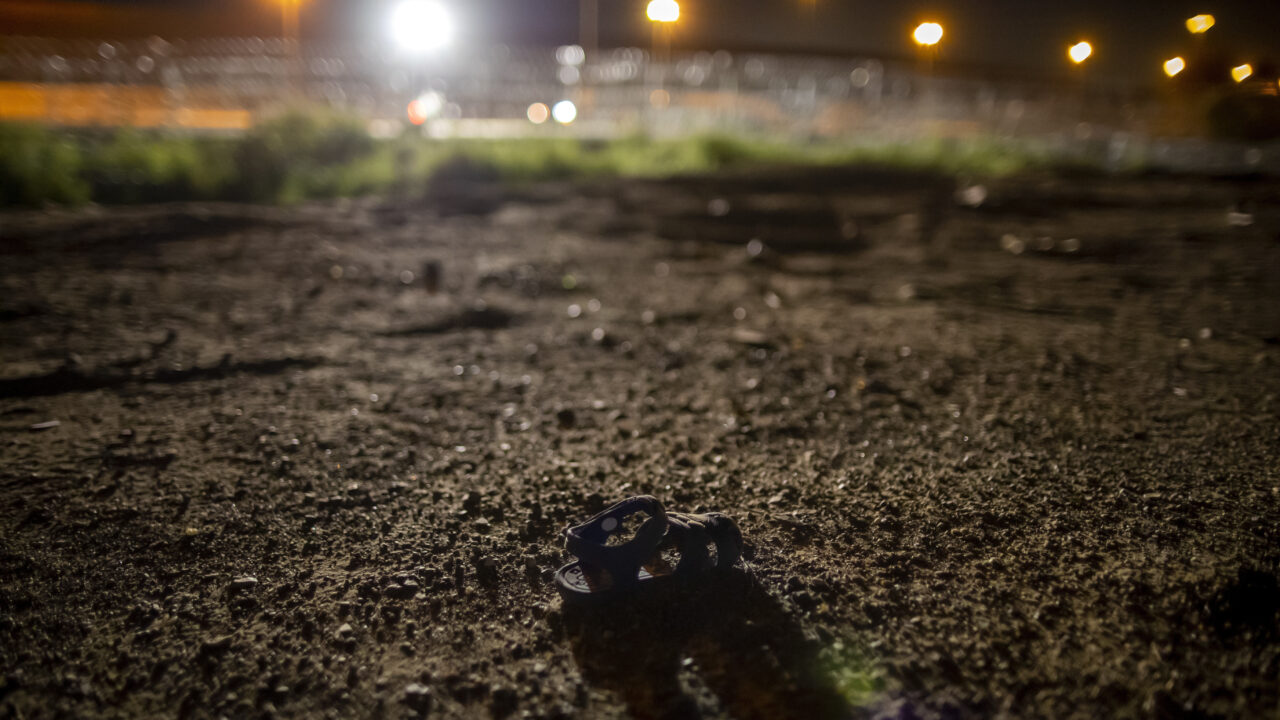 An abandoned baby sandal lies on the banks of the Rio Grande in Ciudad Juarez, Mexico, near the razor wire and border wall of El Paso, Texas, in the background, in August. (AP Photo/Andres Leighton)
This is Part of the "At the Border" Dig series
An abandoned baby sandal lies on the banks of the Rio Grande in Ciudad Juarez, Mexico, near the razor wire and border wall of El Paso, Texas, in the background, in August. (AP Photo/Andres Leighton)
This is Part of the "At the Border" Dig series
Oscar Ríos Mendoza is losing his faith in God, the only thing that has kept him going on the migrant trail since May. “I asked God five months before I left Nicaragua to support me on this journey, and God is the only reason nothing has happened to me, the reason I’ve always found a place to stay and I haven’t been kidnapped,” he said. “But why don’t I feel God with me now?”
Ríos Mendoza left Nicaragua and chose to seek asylum in the United States because he did not agree with his country’s government. As a member of the military, he grew increasingly worried he would be asked to use force against his own countrymen, and there was no way out of his service once it had begun. Although the path north was notoriously dangerous, Ríos Mendoza believed God would show him the way to a better life and the means for his wife and two young daughters to join him in a freer, safer place.
But for the past five months, he has lingered in Juárez, Mexico, moving between migrant shelters and temporary jobs, waiting for an appointment on a smartphone app, CBP One, that will allow him to meet with U.S. Border Patrol officers to ask for asylum. Decisions on when — or if — the appointment will be granted are completely random, but this is the only way to enter the U..S asylum process. A devout Christian, Ríos Mendoza fears that he has not yet received an appointment because he has done something to anger his creator.
“I keep asking, ‘Why, God?’ Why hasn’t he given me an appointment yet?” he said through tears. “I keep seeing other people, people who don’t serve God, who have done bad things, get through, and I’m still here. I keep thinking I must have done something, I must have sinned, but I don’t know what it is.”
Now that Donald Trump has won the presidency, Ríos Mendoza and the rest of the migrants in the shelter worry the appointment system will be halted altogether, leaving them stuck in Mexico indefinitely. This would strand Ríos Mendoza in a country where he never intended to settle, thousands of miles away from his daughters, who would grow up without their father. It would also leave him at constant risk from encroaching criminal groups who prey on migrants for cash and free labor.
Some migrants have begun looking for smugglers who can bring them over the border in more clandestine ways, for a price.
Fearing just that fate, some migrants have begun looking for smugglers who can bring them over the border in more clandestine ways, for a price. But Ríos Mendoza has run out of money and is afraid of dying in the desert, as thousands have in the past decade. He would prefer to return to Nicaragua, but cannot afford to make the long journey back and is worried about facing prison time for defecting from the military should he return. If the asylum system is further restricted, hundreds of thousands — if not millions — of migrants from all over Latin America and the Caribbean will be stuck in Mexico, causing all manner of ripple effects that cannot be clearly anticipated.
There is no way to prepare for a second Trump term, shelter organizers say, but they are bracing themselves against a tidal wave of struggles. The primary obstacle will be the sheer number of people frozen in place in Mexico who are vulnerable and in need of support. Where will all of these people go, and how will infrastructure in Mexico bend to support their needs?
Paulino Reza, a lawyer who represents the CAFEMIN migrant shelter in Mexico City and its residents, said he has already witnessed unspeakable violence, corruption and injustice. Every weekend, he goes to the mountains outside Mexico City alone and sits in silence as a ritual to maintain his composure under the pressure and tragedy of his work.
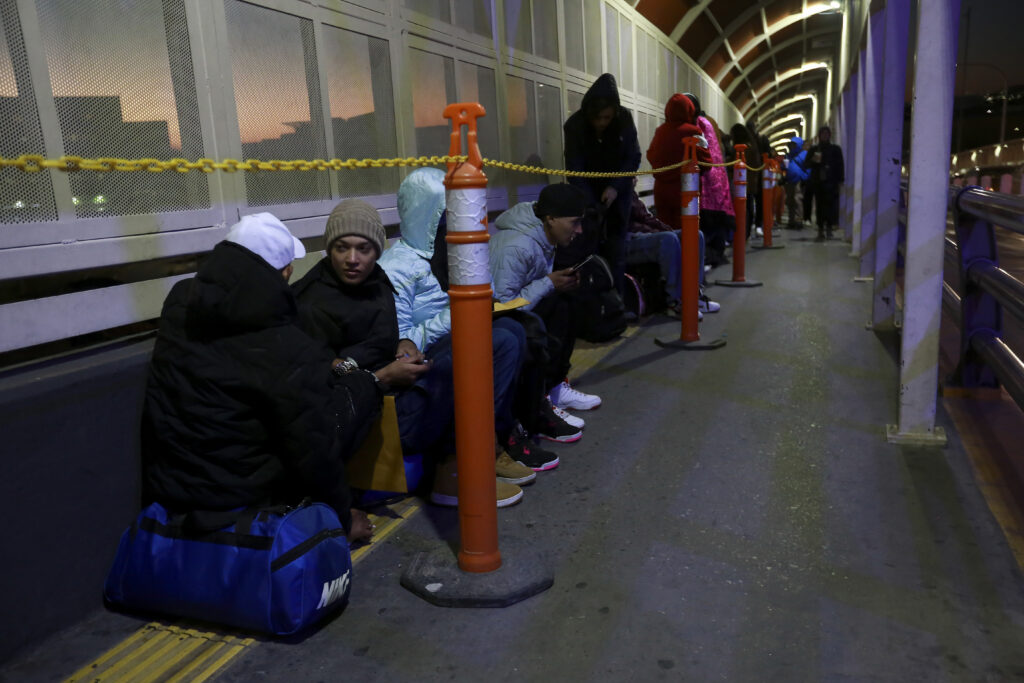
Several of Reza’s cousins who live in the United States, Mexican Americans who have undocumented friends and family, voted for Trump, and question why Reza works in support of migrants. Reza senses a rapid waning on both sides of the border of support for migrants and for human rights. “That opinion, that we shouldn’t help migrants, is growing here in Mexico, as well,” he said. “I never doubt the work I’m doing, but doing the work sometimes makes me doubt that people in general can become more aware.”
Genesis Bonilla, a Venezuelan woman living at CAFEMIN with her husband and three children, plans to make a life in Mexico if Trump gets rid of the CBP One app before she is granted an appointment. She hopes to reach the U.S. to join her brother, who lives in Utah, but she feels unsafe in Mexico, where she and her family have faced near-constant threats from organized crime.
As Mexico fills with vulnerable refugees at risk of violence, Reza expects thousands of migrants will go missing, but the Mexican government has little concern for those who die while passing through the country. “Even the part of the district attorney’s office in charge of disappearances of migrants obstructs our cases,” he said. “They won’t let us [submit the case of a disappeared migrant] if the migrant, who was staying in our shelter, disappeared in a different state, so they make us talk to another office, and then another. And these are the people who are supposed to be in charge of this very issue.”
Bonilla says she is not ready to consider what her life will look like if she does not get an appointment before mid-January. Even if she wanted to hire a smuggler, which would place further danger upon her children, the cost of bringing five people over the border could be close to $50,000, a small fortune that her extended family could not conceive of pulling together.
“It’s hard for me to admit that I’ve even been thinking about it,” she said. “I never imagined myself doing something this hard; I’m shocked by my own bravery. There have been so many moments when I wanted to turn back. I don’t want to have to think about giving up and settling in Mexico, where I never planned to live.”
The Mexican government has little concern for those who die while passing through the country.
Even if Bonilla and her family make it to Utah, they could quickly be deported back to Mexico or held in work camps for indeterminate periods once Trump is in office. Trump has promised to deport millions of undocumented immigrants and asylum seekers. Experts theorize deportation raids against immigrants will first target people whose locations are known to the federal government, which includes people seeking asylum who are on parole but have not yet officially submitted an asylum claim. This group accounts for a large portion of the millions of refugees who have crossed the border in the past four years.
Because the Mexican government has said it will not accept deportees who are not Mexican, the private prison industry is already ramping up to house immigrant families in detention centers where they will work for pennies for long periods of time. The Texas government is offering Trump use of the 1,400-acre Starr County Ranch as a deportation center, as well. Families could be separated at these facilities, so there is a possibility Bonilla would never see her children again. After a similar policy was instituted during Trump’s first term, over 1,000 families remain separated. Though President Biden signed a ban on family separation until 2031, the immigrant advocacy community is bracing for Trump to ignore this order.
In short, Bonilla confronts two possible futures: stay in Mexico, where she faces life-threatening danger and economic instability, or get an appointment on CBP One and make it to the U.S., where she may be held in a work camp and separated from her family.
Kendy Annaus is a migrant from Haiti who just made it to Miami, but could be deported back to Haiti in one of Trump’s raids. Her home country is falling apart at the seams. Annaus’ neighborhood in Port-au-Prince is under constant attack by armed gangs, and his family struggles to put food on the table. Part of him wishes he had just stayed behind in Mexico instead of crossing the U.S. border after attaining a CBP One appointment. He saved money for several years to make it to the U.S., but now he could be sent back to Haiti after losing everything.
“I got used to Mexico after nine months. I only got robbed once, and could imagine myself staying,” he said. “My neighborhood in Haiti is completely controlled by a street gang, and they oversee everything that comes in and out, all of the resources.”
The real horror, Reza posits, will be unleashed in Mexico, where organized crime groups often have free reign. As the demand for smuggling skyrockets, prices will shoot through the roof and scams will proliferate, leaving vulnerable migrants even more unsure whom to trust. This dynamic has already begun. Just before the election, Reza said, a man claiming to be from Mexico’s National Migration Institute arrived at the shelter driving a bus, offering to take migrants north to the border. Though the shelter directors told the migrants they could not verify the man’s identity or claims, 150 migrants paid a fee and boarded the bus. It took them south.
Trump’s policies will not keep people from leaving their countries and attempting the journey to the U.S.
Corrupt officials in Mexico — whether local police, INM agents or military officials — often work with organized crime groups to facilitate mass kidnappings for ransom. Migrants are held in empty houses for days or weeks with little food and water while they await their fate. That dynamic is only expected to increase under Trump. Migrants will spend more time stuck in Mexico, which will increase the opportunities for kidnappings. When kidnappings occur, migrants’ families are extorted out of thousands of dollars. Often, those who cannot pay are killed and dumped in unmarked graves, their disappearances never investigated. Though their families may seek information, most worry about further extortion or putting themselves in danger as well. The same criminal group that murdered a migrant, or a different criminal syndicate, will occasionally offer false information on the murder to the family for another fee.
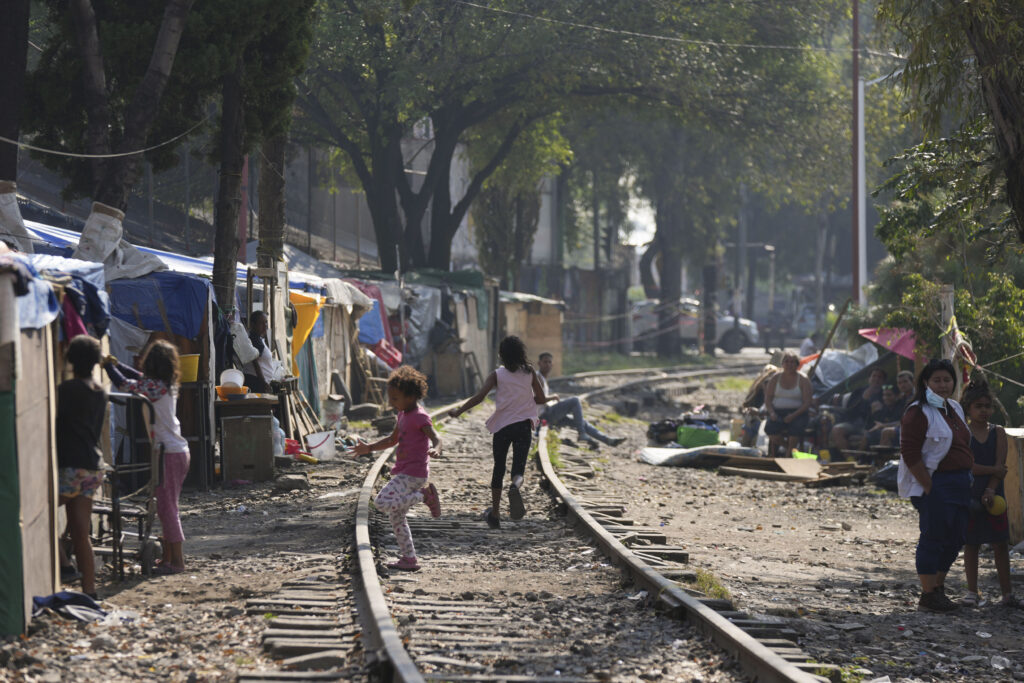
As long as migrant populations still have hope, Trump’s policies will not keep people from leaving their countries and attempting the journey to the U.S. They will only lead to higher rates of suffering and death. Misinformation is rampant on social media, as organized crime groups encourage migrants to make the journey, offering false information about safety and ease of access so they will pay for (often fraudulent) smuggling services.
Due to budget constraints, experts suggest, it is unlikely that Trump will be able to live up to his promises to deport millions of people. But he appears to be preparing to create political spectacles with select deportations and work camps. The administration may also hope that societal alienation, as well as harassment from Border Patrol agents, ICE and militia groups, will cause some immigrants to self-deport.
Ríos Mendoza and Bonilla still have hope of making a life in the United States, but that hope is waning. As the clock ticks toward Trump’s inauguration, neither is ready to accept the possibility that the asylum system will be halted altogether. And neither is worried about the xenophobia they may experience from Americans once they cross the border; they have bigger fish to fry.
“I don’t care if they say things about me,” Bonilla said. “All I care about is having a basic, nice life, a bed frame, a kitchen with appliances that work, to never worry about food. Just that.”
Your support is crucial...As we navigate an uncertain 2025, with a new administration questioning press freedoms, the risks are clear: our ability to report freely is under threat.
Your tax-deductible donation enables us to dig deeper, delivering fearless investigative reporting and analysis that exposes the reality beneath the headlines — without compromise.
Now is the time to take action. Stand with our courageous journalists. Donate today to protect a free press, uphold democracy and uncover the stories that need to be told.



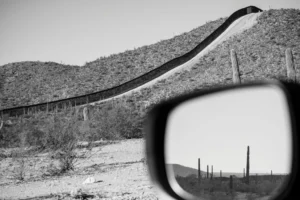
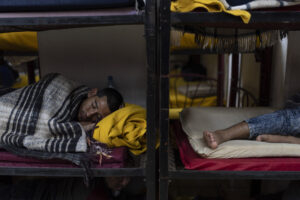
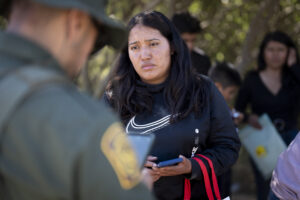
You need to be a supporter to comment.
There are currently no responses to this article.
Be the first to respond.